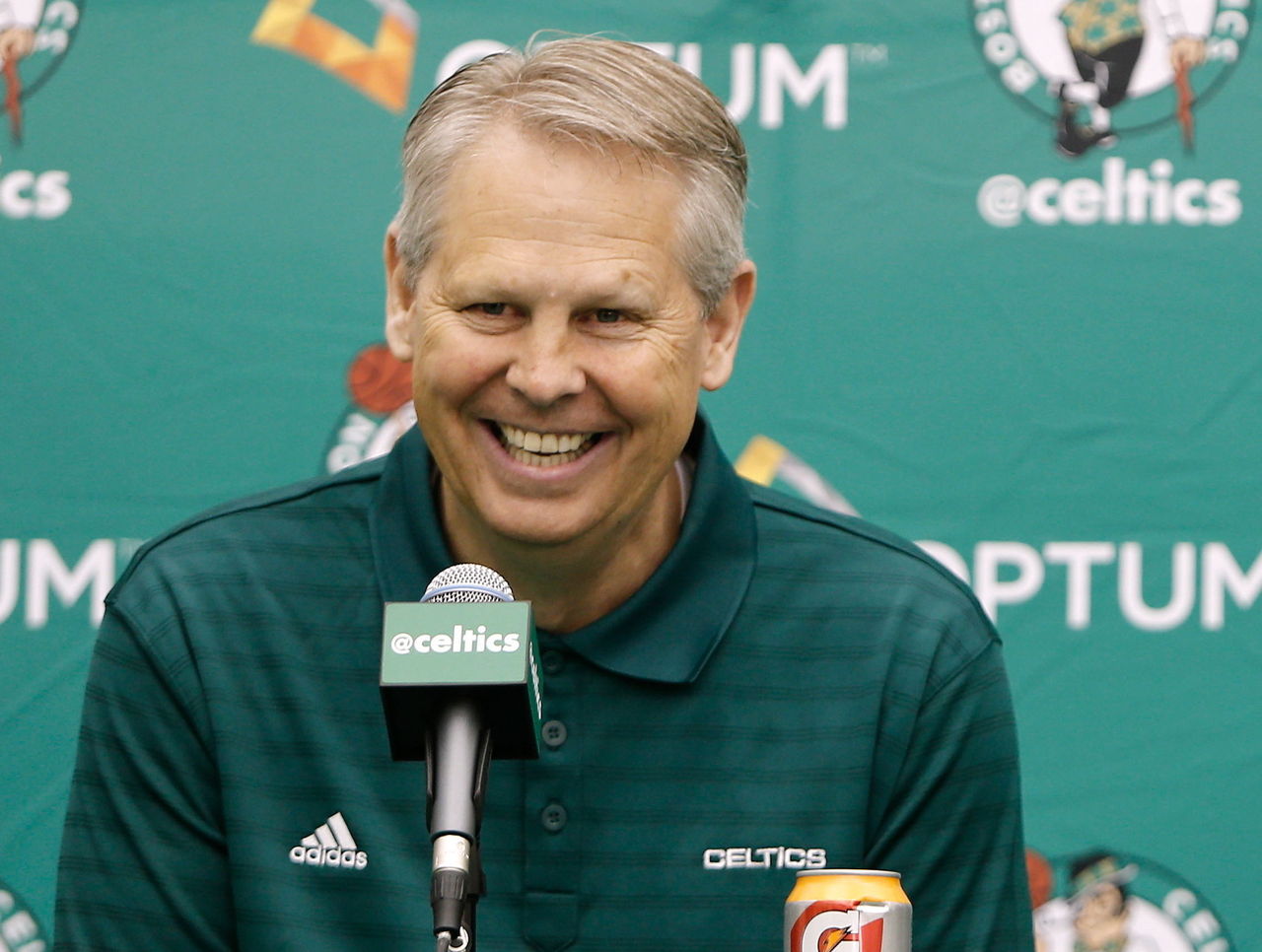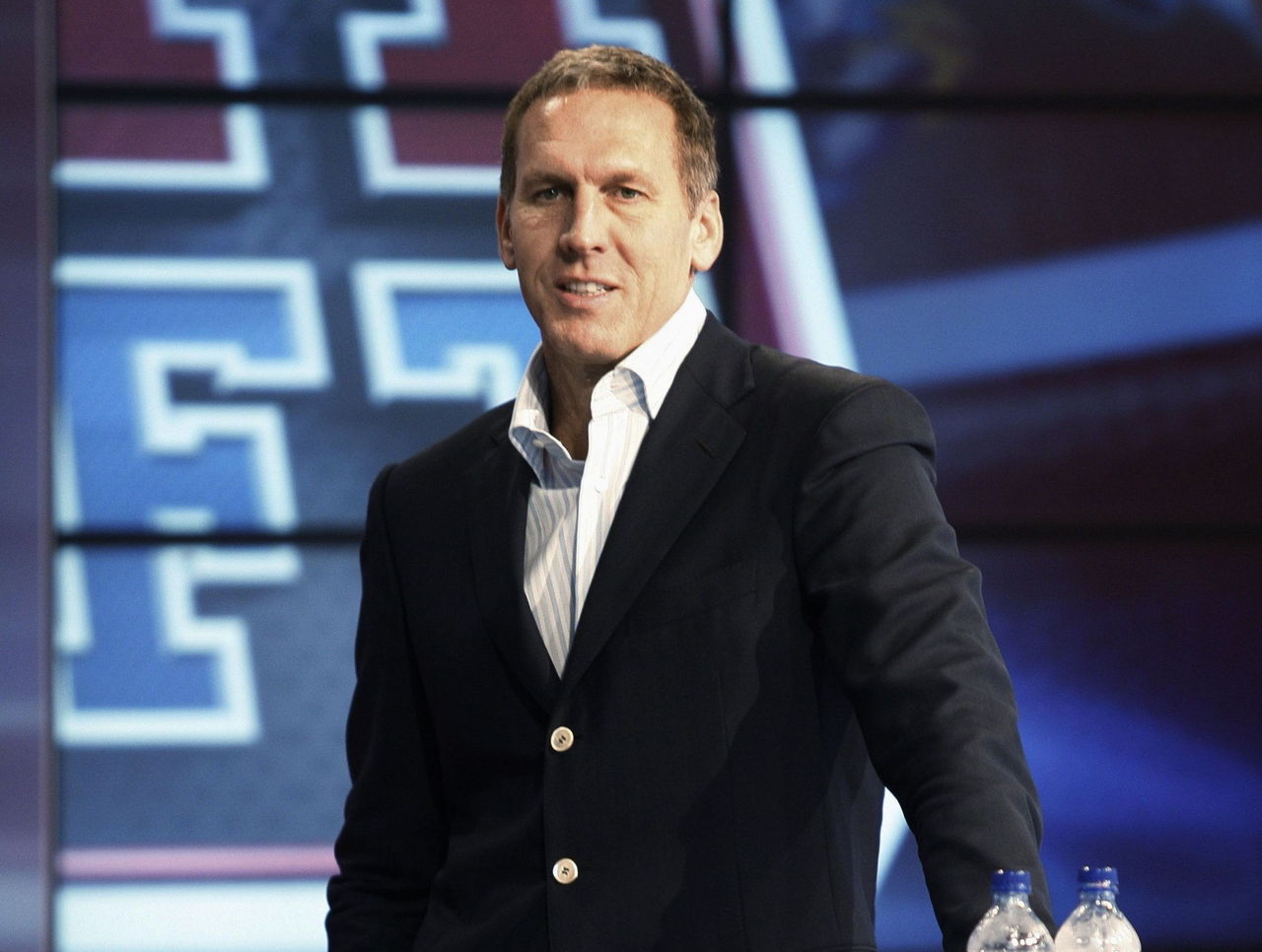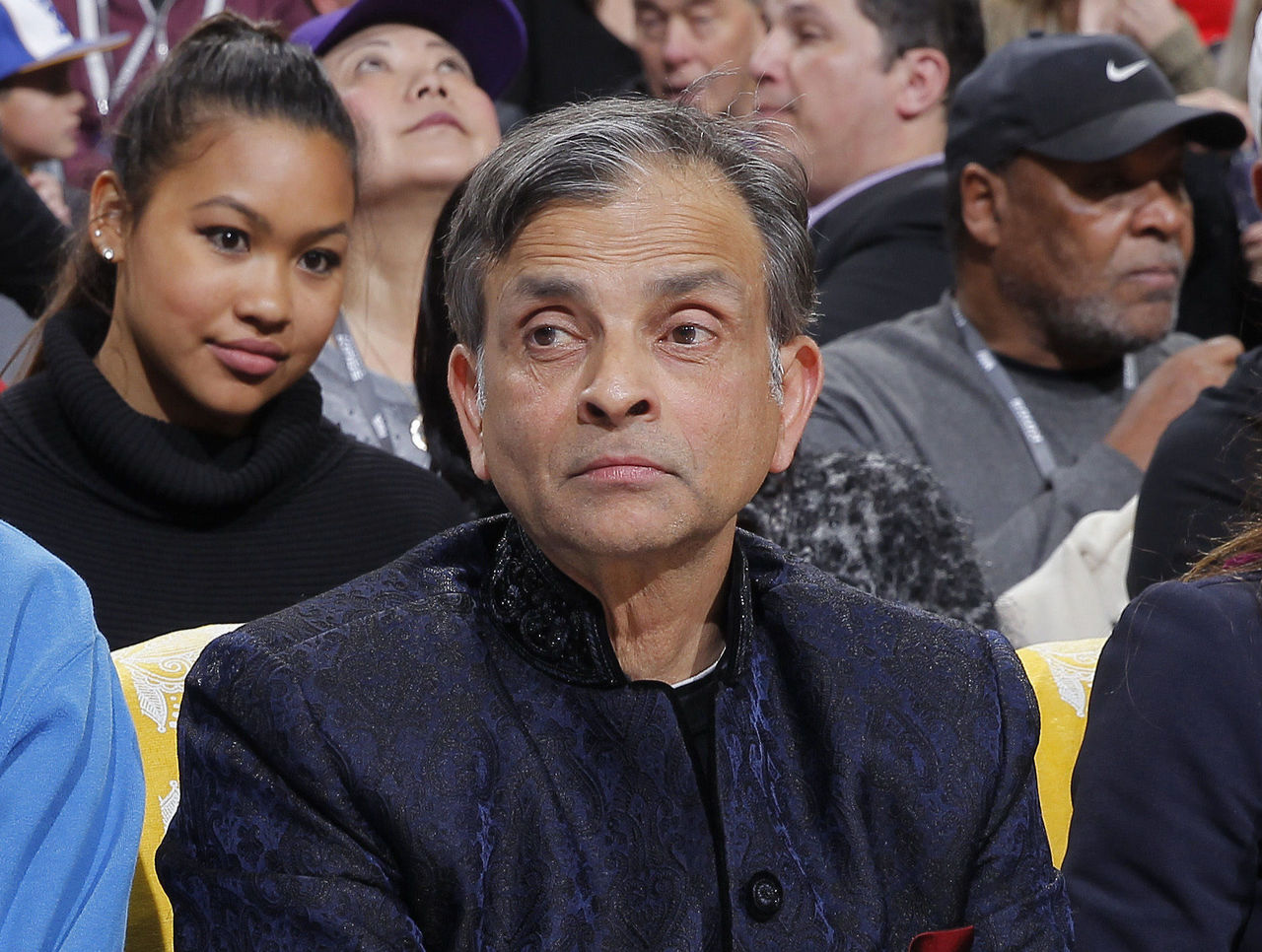Winners and losers from the 2017 NBA trade deadline
Carmelo Anthony, Jimmy Butler, and Paul George all stayed put, but DeMarcus Cousins got moved in the steal of the season (a trade so lopsided we aren't even including it in this list), and 11 other deals were made in the last two weeks heading into the 2017 NBA trade deadline.
Here are your deadline winners and losers.
Winner: Toronto Raptors
The Raptors had a clear agenda heading into the trade deadline. Their All-Star backcourt was in its prime, fully ready to contend, but the supporting cast had some obvious holes. They lacked depth in the frontcourt, and the largely undersized Raptors struggled on defense.
President Masai Ujiri and general manager Jeff Weltman delivered on both accounts while not compromising the team's future. Adding Serge Ibaka gives the Raptors a shot-blocking, 3-point-shooting power forward with playoff experience, while P.J. Tucker gives them a gritty, defense-first wing built like a brick house. Ibaka will join the starting lineup, while Tucker adds depth at small forward behind injury-weakened DeMarre Carroll.
Their chief opponents in the East largely stood pat. Washington added a streaky bench scorer, the Cavaliers couldn’t land their playmaker, and the Celtics failed to snag a superstar (more on that below).
The Raptors, meanwhile, made their additions at an affordable price. Phoenix held out for a first, but eventually caved with mere seconds left before the trade deadline for two seconds. Gaining Ibaka required a cost-effective bench scorer in Terrence Ross and a first-round pick in return, but the Raptors had Norman Powell waiting in the wings to replace Ross and a surplus pick from an earlier trade that will likely end up in the mid-twenties. Toronto was also able to retain all its current prospects.
The Raptors now turn their eyes toward replicating their success from last year’s run to the Eastern Conference Finals. Being armed with more defenders who can score but don’t dominate the ball allows Kyle Lowry, Jonas Valanciunas, and DeMar DeRozan to focus on getting buckets.
Loser: Boston Celtics

(Photo courtesy: USA Today)
Indications are that the Celtics really did get ultra-aggressive in their pursuit of a star - specifically George - and that it was the Pacers' reluctance, not Boston's this time, that kiboshed a potential deal.
Still, it's hard not to see this as another missed opportunity for the Celtics, who could've become a legitimate threat to the Cavs by nabbing someone like George or Butler or at least established themselves as the clear East No. 2 with even a mid-tier-star-level acquisition.
Meanwhile, their Atlantic Division rivals in Toronto beefed up by adding Tucker and Ibaka - the former of whom the Celtics were interested in, the latter of whom they reportedly might’ve acquired if not for a refusal to part with Terry Rozier - while the Pelicans got Cousins for a song.
The Celtics have sorely needed rebounding, rim protection, and secondary scoring all season, but ultimately came away with squat. They’re still in a good spot, and their assets are still extremely valuable, but they once again missed out on a chance to cash in potential value for a sure thing.
Winner: Oklahoma City Thunder
OKC was a one-man show led by Russell Westbrook before the deadline and remains very much a solo act, but the Thunder did well to bolster their rotation without giving up anyone of immediate value.
Taj Gibson is a battle-tested veteran who can defend the post and score in the paint. His experience should help tremendously for a Thunder side largely filled with inexperienced players outside of Westbrook and Steven Adams. Meanwhile, Doug McDermott is a reliable 3-point shooter who perfectly complements Westbrook’s drive-and-kick style.
Those additions cost the Thunder point guard Cameron Payne (and his delightful pregame dances), but he wasn’t very effective following foot surgery and was usurped in the rotation by Semaj Christon. The Thunder could also potentially replenish the loss of young talent with the second-round pick they got back from the Bulls.
Loser: Philadelphia 76ers

(Photo courtesy: Action Images)
The Sixers spent the weeks leading up to the deadline aggressively shopping Jahlil Okafor, to the point that they left him behind for a road trip because they expected to trade him before they returned. In the end, they awkwardly reintegrated Okafor, then on deadline day turned around and dealt a different big man - you know, the one who’s a defensive ace and might actually be able to play alongside Joel Embiid - for an unproven wing and a "first-round" pick that is virtually guaranteed to revert to being two second-rounders.
Nerlens Noel is headed for restricted free agency this summer, and there’s a case to be made that it wouldn’t have made sense for the Sixers to match a lucrative offer sheet, knowing he and Embiid have too much positional overlap to be a long-term fit. But to deal a player with as much promise as Noel for an underwhelming return while failing to find an Okafor deal represents the first significant misstep of Bryan Colangelo’s tenure as general manager.
Winner: Dallas Mavericks
Dallas finally got its center of the future in Noel after being snubbed in recent years by Hassan Whiteside and DeAndre Jordan.
Noel comes at a tremendous bargain. The Mavericks surrendered Justin Anderson (a 23-year-old wing who can’t shoot), Andrew Bogut (a straight-up salary dump), and what will likely be two future second-round picks.
Philadelphia’s crowded frontcourt made it difficult for Noel to shine on offense, but he still managed to flash excellent defensive tools. The sixth overall pick in the 2013 NBA Draft boasts career per-36 averages of 2.2 steals and two blocks - elite totals for a 22-year-old.
Dallas will have two months to evaluate Noel before he reaches free agency, but the Mavericks hold the right to match any offer.

(Photo courtesy: Getty Images)
Loser: Sacramento Kings
As we said off the jump, the Cousins trade was so bad we aren’t even factoring it into our winners/losers breakdown, because it’s too damn obvious. But the Kings took an "L" on deadline day anyway by failing to recoup any additional assets for the veterans and expiring contracts now toiling on a team that’s going nowhere but the lottery.
If the Cousins trade was the start of a full-scale teardown, that would at least make a little bit of sense. But the Kings failed to move any of Darren Collison, Arron Afflalo, Tyreke Evans, Kosta Koufos, Ben McLemore, Ty Lawson, or Langston Galloway. The Kings have no use for any of these guys, but they couldn’t get anything for any of them. No picks, no prospects, nothing. Perhaps the most reliable constant in the NBA each year: the Kings stay the Kings.